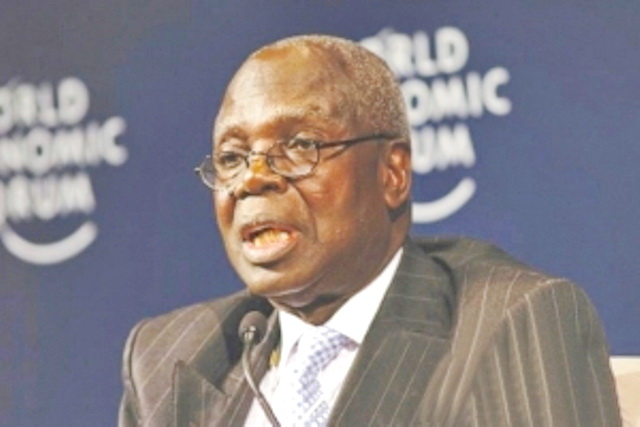
Aggressive recapitalisation, threat to banks - Ishmael Yamson
A captain of industry and Board Chairman of the Standard Chartered Bank, Dr Ishmael Yamson, says the Bank of Ghana (BoG) “is right in choosing a cautious approach” to the recapitalisation of banks, describing the central bank’s posture as the best move to the survival of weak lenders.
With some of the banks struggling to cope with the issue of high non-performing loans (NPLs) on their books, Dr Yamson said an aggressive approach to recapitalisation will force some of the banks “to go under.”
He observed that bank failures on the back of a stern recapitalisation order from the regulator would destabilise the banking sector and by extension, the economy.
“This is why I think the BoG is right in being cautious in making sure that they manage the process in such a way that the transition is smooth,” Dr Yamson told the GRAPHIC BUSINESS in an interview.
Bank consolidation
Dr Yamson’s comments followed recent hints by the BoG that it was holding on to a new recapitalisation order until some undercapitalised banks were resuscitated from sector-specific weaknesses.
The resuscitation, which includes recapitalising to the current GH¢120 million, was to ensure that all banks are on the same ladder before they are asked to recapitalise to the new limit, which is expected to be in excess of GH¢200 million.
While the news came as respite to the weaker banks, mostly local ones, proponents of bank consolidation in the county felt the BoG was missing yet another chance to cause mergers and acquisitions in the relatively small banking sector.
With annual Gross Domestic Product (GDP) at US$40 billion, some contend that having 33 banks was uneconomical for the banking sector and the economy at large, hence the need for strategies that will help force the bigger ones to take over the smaller and weaker ones.
While this is laudable, Dr Yamson said such an approach must be measured.
“We need some bank consolidation and it will be good for the banks themselves to build strong capital base. However, I will agree with the central bank; every step must be measured such that it will not be to destroy but to build,” he said, citing the implications on the wider economy.
“We should aim at creating a better and more robust banking sector not one that will cause instability in the economy,” he said.
Desired limit
Although some have rumoured that the BoG intended to ask banks to recapitalise to GH¢250 million or GH¢300 million, Dr Yamson said the final determination should be based on the growth aspirations and the cability of the economy.
“The BoG can even say GH¢500 million or more but it should all be based on the risk profile, potential of the sector, what they want the banks to do and also the growth aspirations of the economy.”
“See, if this economy is going to grow at, say, 10 per cent per annum for the next 10 years, then you will need very big banks. So, whatever figure they will put out will be driven by the growth aspirations of the country,” he said.
It is expected that the new directive on recapitalisation will be issued towards the end of the year by which time the undercapitalised banks would have successfully recapitalised or provided credible guidelines on doing so in line with BoG and International Monetary Fund (IMF) requirements.
Meanwhile, some banks have already started reorganising themselves ahead of the order.
CAL Bank, which suffered the full brunt of the NPLs last year, had earlier alerted its shareholders that its “likely to initiate a corporate action to raise more capital this year.”
Other banks have also opened discussions with shareholders on available options they could use to shore up their capital reserves without straining their operations or diluting the holdings of existing owners.